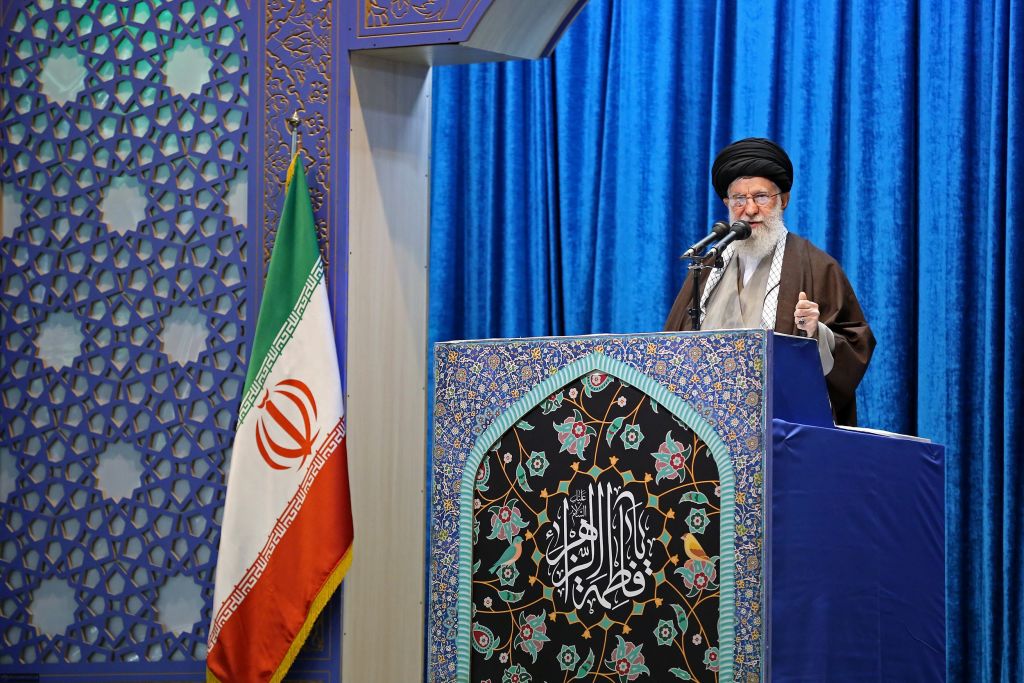
An Iranian flag is pictured at the UN headquarters in New York, January 8, 2020. /Xinhua
An Iranian flag is pictured at the UN headquarters in New York, January 8, 2020. /Xinhua
Editor's note: Thomas O. Falk is a London-based political analyst and commentator. He holds an MA in International Relations from the University of Birmingham and specializes in U.S. affairs. The article reflects the author's views, and not necessarily those of CGTN.
With Joe Biden's inauguration on January 20, Washington's return to the Joint Comprehensive Plan of Action, the Iran Nuclear Deal, is widely considered preordained. However, obstacles remain from Tehran's side as well as the American perspective.
With the incoming Biden administration destined to change the dynamic in the conflict between Tehran and Washington, Iran is making its moves, albeit, in more than one direction, it appears.
At the outset, the country has an apparent interest in escaping U.S. sanctions that have devastated the country's economy. Iran's Supreme Leader, Ayatollah Ali Khamenei, is cognizant of it and has provided President Hassan Rouhani's government a mandate for negotiations.
Rouhani himself had previously stated and promised that Iran would again strictly adhere to its nuclear program's restrictions if Washington also fulfilled its obligations under the agreement. "Within an hour," Iran would re-join the deal, he said.
So far, so good.
However, within Iran, other forces have displayed a rather limited proclivity for a return to diplomacy. To Rouhani's dismay, these ultra-conservative hardliners have a majority in parliament.

Iranian Supreme Leader Ayatollah Ali Khamenei gives his first Friday sermon after eight years in the Imam Khomeini Musalla, Tehran, Iran, January 17, 2020. /Getty
Iranian Supreme Leader Ayatollah Ali Khamenei gives his first Friday sermon after eight years in the Imam Khomeini Musalla, Tehran, Iran, January 17, 2020. /Getty
At the beginning of December, they utilized their majority to introduce a law requiring Rouhani's government to deliberately violate the nuclear deal's key provisions and even expel International Atomic Energy Agency (IAEA) inspectors from the country if the U.S. failed to cease its sanctions within one month.
Rouhani, who has consistently expressed his intention to seek a diplomatic solution to save the deal against the rigid forces in parliament, answered promptly: "unnecessary and counterproductive," he called the law, while also denying parliament the right to determine the country's nuclear policy.
Nonetheless, Iran's Guardian Council, also a conservative-dominated body, approved parliament's law with minor changes.
The decisive factor now is the Ayatollah Khamenei's perspective. The supreme leader has the final say on all state affairs and hence the right to veto the law.
Khamenei, who has long shown sympathy for the hardliners, said that if the lifting of the sanctions can be achieved in a "correct, wise and dignified way," it should be done.
He supported the government as long as it adhered to the nation's interests - a formulation with which Khamenei maintained the option to veto the law.
The pressure on Rouhani is hence increasing. And with the presidential elections on the horizon, the dynamic is destined to become even more complex.
Without Khamenei's veto and if further violations were to occur, Washington's return to the deal became increasingly inconceivable. As much emphasis as Biden has put on diplomacy, he has been adamant on one core principle: sanctions will only end if Tehran returns to "strictly adhering to the nuclear agreement."
The latter is all the more relevant since Biden's designated National Security Advisor Jake Sullivan has attached Washington's return to the deal to two conditions. First, Iran must once again fully comply with the provisions of the original agreement. Second, negotiations on further restrictions for Iran must follow.
According to Sullivan, these would aim at Iran's regional policy, i.e., its support for proxies, as well as Iran's missile program.
However, Iran's Foreign Minister Javad Zarif, as well as Rouhani, have already stated that Iran would not accept any additional stipulations.
With Tehran seemingly not inclined to accept the U.S.' demands at all cost, gaps that will have to be bridged if diplomacy was to prevail, remain. And as such, the leadership change in Washington is by no means an automatic change in the conflict.
(If you want to contribute and have specific expertise, please contact us at opinions@cgtn.com.)

